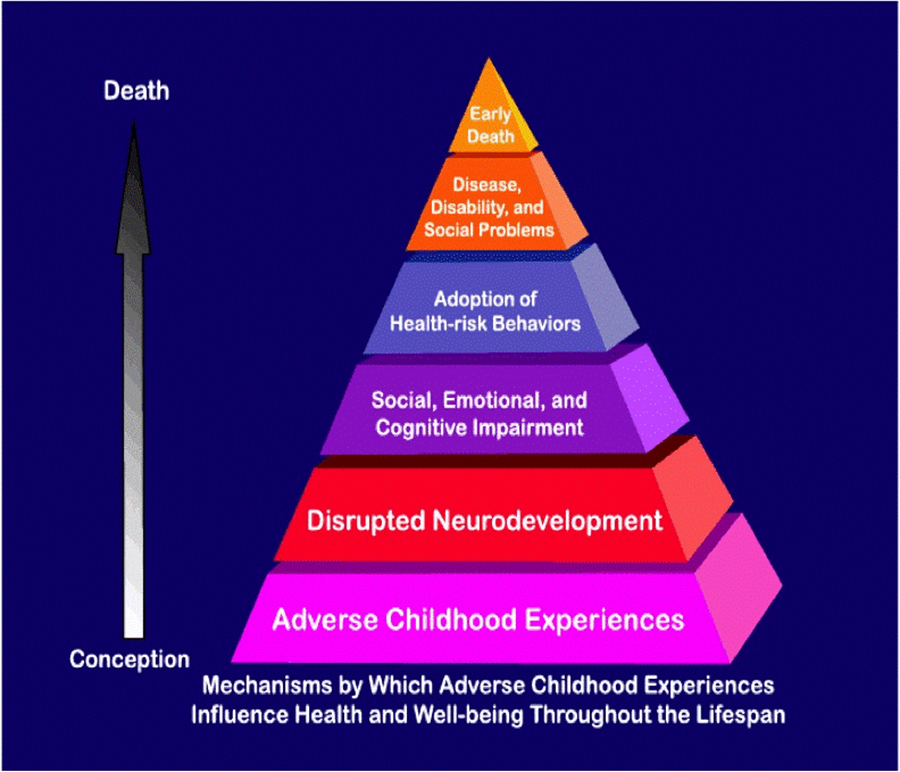Adverse Childhood Experiences
Adverse Childhood Experiences, or 'ACEs', have a strong correlation to multiple risk factors for several leading causes of death in adults. Children who experience ACEs are at increased risk of conditions that harm their health in adulthood, including conditions may cause or exacerbate a disability.
The ACE study Relationship of Childhood Abuse and Household Dysfunction to Many of the Leading Causes of Death in Adults: The Adverse Childhood Experiences (ACE) Study, was first published in 1998. At that time, the study was completed with over 9,000 adults where their adverse childhood experiences (including but not limited to the person experiencing psychological abuse, sexual abuse, living with household members who use substances / were mentally ill) were compared to measures of adult risk behaviour, health status and disease. At the time, the study “found a strong graded relationship between the breadth of exposure to abuse or household dysfunction during childhood and multiple risk factors for several of the leading causes of death in adults” (Felitti et al., 1998). The below diagram shows how ACEs influence health and wellbeing over the lifespan.

Further studies have occurred since the initial ACEs study, one of which investigated ACES in youth in a low income, urban community. The study concluded that “Exposure to 4 or greater ACE categories was associated with increased risk for learning/behaviour problems, as well as obesity” (Burke et al., 2011).
Note
Understanding the ACE study shows us how some young people and adults we work with are already at disadvantage and at risk of a variety of health and social problems due to their childhood experiences. It also highlights the importance of preventing ACEs from occurring in the children we work with.
Published on:
Last reviewed:
-
Date:
Page created

